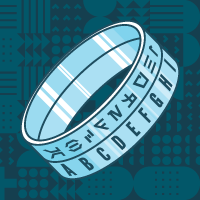A new lawsuit in Florida is raising eyebrows among marketers operating instant win/scratch-and-win promotions in that state. Last December, Florida Attorney General Bob Butterworth filed a civil complaint with the Leon County Circuit Court that charged retailer Service Merchandise with operating an unlawful lottery and game promotion.
According to the complaint, Service Merchandise ran a sweepstakes in late January and early February of 1998 to promote the sale of fine jewelry for Valentine’s Day. Participants received a free scratch-off game piece with the purchase of any jewelry item from participating Service Merchandise stores. Participants could alternatively receive a free game piece by sending a self-addressed stamped envelope to game operators. The game advertised one grand prize trip to Paris, three first prize big screen TVs, and an assortment of secondary prizes.
Acting upon a consumer complaint, the attorney general’s office launched its own investigation into the promotion, and concluded that it was both an unlawful lottery and an unlawful game promotion under Florida statutes.
An illegal lottery, by definition, consists of three separate elements: consideration, prize, and chance. Almost all U.S. jurisdictions prohibit lotteries. However, if one of three elements of a lottery is eliminated, the game is no longer an illegal lottery, but rather a legitimate promotional game.
Generally, promoters achieve this objective by removing the element of consideration. They provide a free alternative method of entry.
Interestingly, even though Service Merchandise did provide participants with a free alternative entry option, the attorney general concluded that the game was unlawful because consumers were “required to purchase an item of fine jewelry” in order to enter the sweepstakes.
It is not entirely clear from the face of the complaint why the oft-used self-addressed stamped envelope alternative was deemed insufficient. The complaint alleges that Service Merchandise failed to include a copy of the official rules in direct-mail flyers, newspaper inserts, and in-store signage advertising the promotion. Moreover, none of those materials included any mention of an alternative entry method. As such, the attorney general likely believed that consumers lacked sufficient notice.
Game operators should take great care in the future to conspicuously disclose the alternative method of entry in close conjunction with any materials promoting the sweepstakes.
Award the prize or pay the price In addition to allegations of unlawful lottery, the complaint against Service Merchandise also charged the retailer with operating an unlawful game promotion. Under Florida law, a game promotion in connection with the sale of consumer products or services is unlawful if, among other things, the operator fails to award all prizes. This statute has traditionally been interpreted by Florida enforcement authorities to require only the possibility of awarding all prizes if they are all claimed.
In 1991, the Florida Department of State, Division of Licensing issued a ruling which would have required all prizes in excess of $25 be awarded in a “second chance” drawing. That same year, however, the Division of Licensing retracted its position.
In the wake of the Service Merchandise suit, however, it appears that traditional interpretations may no longer hold true. The attorney general found that Service Merchandise failed to award the grand prize trip to Paris and the three big screen TVs, and had awarded only 228 of the 1,013 secondary prizes. The attorney general requested a court order requiring Service Merchandise to award all advertised prizes through a second chance drawing or other equally effective method.
Generally speaking, instant win/ scratch-and-win games do not easily lend themselves to a requirement that all prizes be awarded. From a game operator’s standpoint, it is unduly burdensome to administer a second chance drawing to award remaining prizes. In fact, a great number of nationally run instant win/scratch-and-win games do not provide such a mechanism.
Prior to the complaint against Service Merchandise, the Florida Attorney General offered no indication that such games must provide a second chance mechanism. Most game operators currently operate on the assumption that these games are legal without one. A shadow of doubt has been cast over that assumption.
Significantly, the decision of the Florida Attorney General to pursue Service Merchandise was not spurred by a directive or mandate to pursue cases where all prizes were not awarded. Rather, it appears that it was based on the particular facts of the Service Merchandise case. Nevertheless, the outcome could cause far-reaching repercussions on the status of instant win/scratch-and-win games in Florida.



 Network
Network

